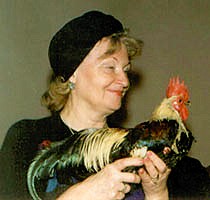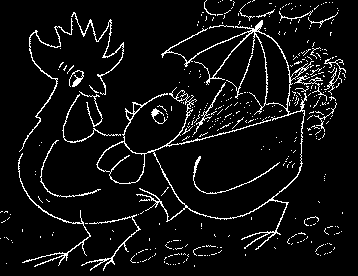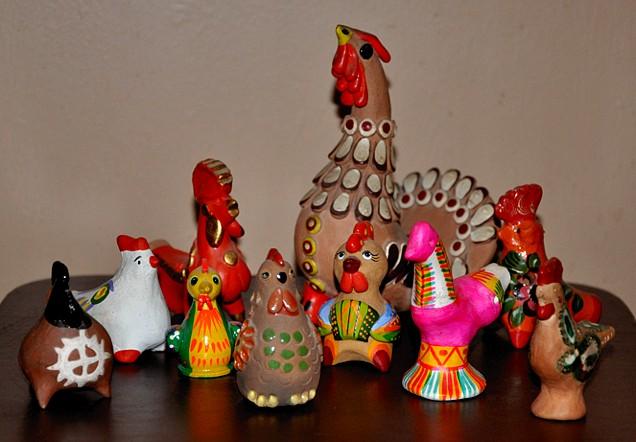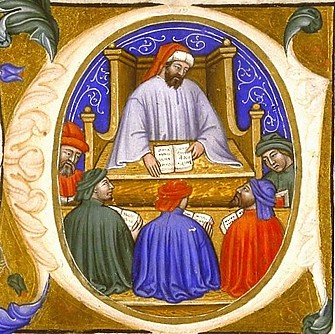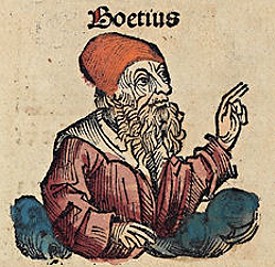Irina Moiseyeva
born on Friday 4 March 1932
she passed away on 2015 - Friday November 20
Obituary
by
Antonina A. Sevastyanova, Alexander V. Alexandrov, Michael N. Romanov
A time to cast away stones,
and a time to gather stones together.
(Ecc. 3: 5)I am a leader of a group attended to the genetics of domestic fowl at the Laboratory of Animal Comparative Genetics.
The publications of our group related to the theme on quantitative genetics, genetic resources of domestic fowl, biochemical polymorphism, peculiarities of old Russian chicken breeds, biological diversity of domestic fowl (genetic, morphological, typological, man usage and others), gene geography, principles of chicken breed classification, chicken breed similarities.
The problem of the origin, distribution and evolution of domestic fowl is the main interest in our investigations during last two years.
The time has come to gather stones together. That's why we began to search material for the computer data bank of the ancient evidences (archaeological, ethnographical, etymological, ethnological, from ancient literature, art, religions and so on) of the domestic fowl origin and distribution. It consists now of about 150 points.
Everybody is invited to take part in the enlargement of this data bank. All together we shall build the mountain of scientific truths with the scattered facts and ideas.
At the end of this note I'll cite the words said by famous Russian chemist D. I. Mendeleyev:
«The time will come when all the world is comprehended in one science, one truth, one industry, one fraternity and one friendship with nature....This is my belief. It moves me ahead. It makes me strong. It is worth living for this achievements.»
Year 1996
Letter in English
from Irina Moiseyeva
to Anicius Manlius Torquatus Severinus BoethiusTranslated into Latin
by Elio Corti
Vavilov Institute of General Genetics - Moskow

1995
They are whistles from my collection.
They possess a magic meaning: they help persons
to avoid misfortunes by their whistle.
The brown cockerel at the left has white circle on the breast.
It is the symbol of the sun in the time of paganism.

Boethius teaching his students
Initial in a 1385 Italian manuscript of the
Consolation of PhilosophyDecember 2012 - About two decades ago Irina Moiseyeva read “The last Roman, Boethius” written by V.I. Ukolova in Russian. The book tells the tragic story of Boethius, an outstanding philosopher, scientist, poet and encyclopedist. Then she came to be acquainted with the last book by Boethius “Consolation of Philosophy - De consolatione philosophiae” that he wrote in jail before being executed. Both books led her to the idea of writing a letter to Boethius to discuss eternal questions that have always troubled humans.
Year 1996
Letter in English from Irina Moiseyeva
to Anicius Manlius Torquatus Severinus BoethiusTranslated into Latin
by Elio Corti
From
Dr. Irina G. Moiseyeva
Russian Academy of Sciences
N.I. Vavilov Institute of General GeneticsTo
Magister officiorum
Anicius Manlius Torquatus Severinus Boethius
Anicio Manlio Torquato Severino Boezio
San Pietro in Ciel d'Oro
Pavia – Italia
Tomb of Boethius (Rome ca. 480 – ? 524 or 525 AD)
in San Pietro in Ciel d'Oro – Pavia – Italy10.12.1996
Dear Boethius,
I think that nobody doesn't guess to write letter to you, so you don't know many events that passed after your death and the extent of the significance of your teaching for the mankind.
Urmantzev (philosopher, who was working out The general theory of systems in Russia, the country that didn't exist at the period of your life) confirms that no new discoveries are in your studies after Socrates, Plato, Aristotle and other ancient philosophers. Some scientists have the same opinion. Urmantzev divides all people into two categories: creators of new theories and noncreators of new theories. He leaves out of account the last group of people. I can't agree with him. As this concept concerns to you I'll try to explain my position. The existence of the civilization depends on different human activities: creation of theories, teaching, treatment, art, building, making clothes and etc. They are of equal importance for the whole civilization in spite of creatable in any level or no creatable characters of the professions. Of course some fields of people's works may be leading in the various period of the development of the mankind, in different countries and circumstances. For example, if earthquake happens physicians and savers became of the most important professions, but not the creators of new theories! However the creators are more valuable for eternity!
The same situation in general is for an individual of the human society. It has three essences: Homo sapiens, Homo social and Homo biological. An individual needs in the presence of all three essences to be developed in harmony. What do you mean is Dr. Elio Corti from Valenza fanatic of fowl? Is he a jailbird? He trust to the bird to resolve his own problems: to smoke or not to smoke and refused of smoking when the bird Gracula religiosa
throw out all his cigarettes! Every fanatic deprives himself of some part of essences.
The main subject of this letter is Homo sapiens. It is needed to be Homo sapiens four elements: first and second stages of cognition, the object to which the cognition is directed and the result of cognition of this object. It is named comprehension. I substitute first and second stages of the cognition for Spirit (human mind, logos, intellect or ratio) and for Soul (anima), though I understand that they are not exhausted by the first and the second stage of cognition. I choose the word Spirit and Soul because they are nice and I like them. Primum it must be done the definition of Spirit and Soul. ("Soul" in Russian is "she", " Spirit is "he" as in Italian). Spirit is the ability of understanding and comprehension of the world. To give the definition of Soul is very difficult task, because I have not found right definitions of Soul in my opinion. It seems that the essential sense escaped out of all definitions. Do you know the essential sense of Soul?
Spirit and Soul are included in the system of comprehension of the world. In spite of their community they have so distinct affinities! I think Spirit is tall as a column or a tree and may going out of body. Soul is small, round and has enough room in a human body and never leaves it during a human life. But nevertheless people can loose their Soul sometimes. For what shall it profit a man, if he shall gain the whole world, and lose his own soul? People may use Spirit of another person. Everybody possesses only own Soul and doesn't able to borrow it from others. Spirit of different humans resembles to each other in some cases. Soul is unique. She takes part in love. When Spirit meddles in love the last disappears! The characters of Spirit are almost, clear for science, since people construct the artificial mind with success. Nobody try to create Soul! One's Spirit, is immortal for the mankind life. Soul perishes with the death of a human body. Sometimes she is able to leave the memory of her existence. No more! Spirit has great power. Soul is delicate, unprotected and can be destroyed after uncareful treatment.
You place Spirit on the highest top in the system of these two parts. (Consolation: book V, V). I have a great respect to Spirit myself (I send you a small verse on this theme). But the truth is better. So let us continue to discuss. The kind of relation between Spirit and Soul is accomplished in four main ways: in helping each other, in subordination each other, in antagonism and in "empty" relations (absence of relations). The types of relations depends on the intellectual maturity of human, period of his life, nationality, customs, outer circumstances and many other causes. Spirit and Soul are not constant. They change and develop during human’s life. Child Spirit and Soul are not equal to themself in adult people.
Soul dominates on Spirit in the case of subordination very often. In your verse about Orpheus and Eurydice Soul didn't subordinate to Spirit (Consolation: book III, verse XII). She may have this right, though I understand very well from my own and the mankind experiences that Spirit sees by thousand eyes and Soul only by one. So she makes errors and when she isn't controlled by Spirit misfortunes happen often. But who can say when humans get the highest enjoyment being in the delusion or knowing the truth? Can you answer? You feel that to know everything for people is not very pleasant situation (Consolation: book III, VIII).
The best situation is when both Spirit and Soul are in an agreement, in helping to each other. Then the results of human Spirit activities (theories, discoveries, knowledges, concepts and so on) are transferred through human's Soul and become emotional coloured, impressive, alive. Without this process the theories are useful but dry, dead and dull. In her turn Soul is undergone the influence of Spirit. Afterwards she gets kind, gentle, beautiful and as a sensitive turning fork hears every tiny sounds! Vice versa, Soul is primitive and rough as brachycephalus has!
I suppose that your Spirit and Soul were in harmony in your life. The evidences are: your teaching, educational books are used for about 15 centuries. Your ideas were used in arts, literature, poems (Dante, Shakespeare, Moiseyeva and others ). I don’t know the example in art where the formula e = mc2 of Einstein was used! You rose the main questions for mankind (Spirit and Soul, Faith and Spirit, Fatum and Fortuna, Freedom of human's will, the goal of human's life and so on). Do you think that people after you resolved these problems? Oh, no! They do not know yet right answers and if they know they do not follow them. Your writings, verses undoubtedly have been transferred through your Soul because they impress and excite people so long! The people including me are forced to think by you! Your own life and tragic death influence on people in the positive way and became an example to be courage and stoic when one's life is not pleasant. You have shown the greatness of human Spirit over the individual misfortunes and afflictions which are so minor in comparison of all world bitterness and unfairness! The destiny of humans by you is: to live, to love, to think, to create, to make good deeds. This is your will to future generations.
I do not claim my letter is a philosophical essay. Somebody will find in it many mistakes concerning to logic, gnosiology and The general theory of systems. My task was only to understand my own position to some main questions of human life. I wanted to tell you about my negative consideration of differentiation of people into elite and non-elite. It is no matter for me who is included in elite: geniuses, tsars, presidents, rich men and etc. I try to analyse the complicate structure of Homo. I should like to defend my Soul against the domination of other Spirits, which seem to me are not right. She may have her own ability to choose the way sometimes under the control of my own Spirit. I do not know how often. Let us leave some share of secret in the nature of Soul. Here I express my credo.
At the end. Please, Severino lift up your wise head over the computer and look at the Pole star. It is not a very bright star, but it shines alone in this area of the sky. This is the direction where I live. I am sure that you know the constellations very well (Consolation: book I, verse VI, book IV, verses V, VI). Your star is flying in the sky. I do not know where.
I embrace you.
Heartily yours
Irina
To the memory of Boethius
Gymn to Spirit
As the light of very far star
reaches the earth not soon.
Thus the light, of the Boethius' great mind
we receive through surface and centuries
not at once.
Boethius says: "Oh, people, do not fuss about.
Treasure or poverty, glory or oblivion,
terrible ugliness or divine beautifulness
are nothing.
They disappear without any trace.
Only Highest Spirit may be out of death.
It builds the bridge to the Eternity for us".30.10.1996
Irina Moiseyeva

Irina Moysis Filia
Officiorum Magistro
Severino Boethio
apud Sanctum Petrum in Cælo Aureo
Ticini
Italia
salutem plurimam dicit.Dabam Moscæ die quarto ante Idus Decembres
Anno millesimo nongentesimo nonagesimo sexto post Christum natumCarissime Boethi,
Arbitror neminem cogitavisse tibi epistulam scribere, ita tu nescis innumerabilia quæ post mortem tuam acciderunt neque auctoritatem pro humano generi præceptorum tuorum.
Urmantzev, qui est Russiæ doctus, ex natione quæ te vivente nondum erat, confirmat post Socratem, Platonem, Aristotelem aliosque antiquos philisophos, novas inventiones in tuis studiis non esse. Non nulli docti eandem opinionem habent. Urmantzev humanum genus in duas partes dividit: novarum doctrinarum creatores et non creatores. Ipse secundam partem visendam non existimat. Ego cum eo concordare non possum. Quoniam adfirmatio ista ad te pertinet, positionem meam tibi explicare conabor.
Cultus atque humanitas pendunt ex differentibus hominis industriis: ex doctrinarum creatione, ex docendo, ex musica, ex arte, ex ædificiis, ex textiliis, etc. Hæc industriæ paris et æqualis maximi momenti pro cultu atque humanitate sunt, et nostra non interest si modo quævis professiones ad creandum aptæ vel non aptæ sint. Obvium est aliquot humanos labores graves esse in variis hominis progressionis ætatibus, in diversis regionibus atque momentis. Ut exemplo utamur, si terræ motus accidit, medici atque auxilium ferentes maximi momenti fiunt, non autem novarum doctrinarum creatores!
In eadem condicione quisvis ex humano grege versatur. Ipse trinas naturas habet: Homo sapiens, Homo socialis et Homo biologicus. Unusquisque concorditer adulescendi necessitat trinis naturis præsentibus. Quid cogitas de Elio Corti ex Valentia ad Padum, qui fanaticus gallorum atque gallinarum est? Omnis fanaticus privat seipsum naturæ aliqua parte.
Homo sapiens præcipuum argumentum huius epistulæ est. Quattuor elementa necessaria sunt ad identificandum Homo sapiens: primus et secundus cognitionis gradus, id cui cognitio directa est, denique exitus huius rei cognitionis. Eius nomen comprehensio est. Ego substituo Spiritum in locum primi et secundi cognitionis gradus (humana mens, logos, quæ est tuus intellectus seu ratio) atque Animam (tua anima), nihilo minus sciam eos exhaustos non esse primo et secundo cognitionis gradu. Eligo Spiritus atque Anima verba quia pulchra sunt et mihi placent.
In primis necesse est Animæ et Spiritus definitionem reddere (In Moscovitarum lingua Anima feminini generis est - illa -, Spiritus masculini generis est - ille - sicut in Italica lingua). Spiritus est ingenii facultas mundum intelligendi atque comprehendendi. Difficillimum est secundam definitionem reddere, quia puto me Animæ æquas definitiones non invenisse. Prima significatio videtur ab omni definitione fugere. Num Animæ primæ definitionis notitiam habes?
Spiritus atque Anima inclusi sunt in mundi comprehensionis disciplina. Quamquam communes sint, distintissimas affinitates habent! Puto Spiritum tamquam columnam seu arborem proceram esse, atque ipsum ex corpore exire posse. Anima parva est, rutunda, atque satis spatium in humano corpore habet et nunquam inter vitam corpus relinquit. Sed, nihilominus, interdum unusquisque Animam suam perdere potest. Quid homini prodest mundum totum tollere cum animam suam perdet? Unusquisque alicuius Spiritu uti potest. Unusquisque tantum Animam suam habet et impossibile est eam ab aliis mutuum habere. Aliquando differentes Spiritus similes sunt. Anima unica est. Amoris particeps est. Quando Spiritus amore implicatur, evolat amor. Spiritus signa et notæ quasi scientiæ claræ sunt, quia artificialis mens prospere extruitur. Nemo Animæ creationem conatur. Uniusquisque Spiritus humanitatis vitæ immortalis est. Mortuo corpore, Anima moritur. Spiritus magnam potentiam habet. Anima mollis est, protecta non est, atque post indiligentem tractationem destrui potest.
In culmine Spiritum ponis in disciplina harum duarum partium (De consolatione: lib.V, V). Ego ipsa magnam reverentiam Spiritui habeo (versiculum de hoc argumento tibi mitto). Sed verum melius est. Itaque, sine me ut disputationem pergam. Relationis forma inter Spiritum et Animam ad effectum perducitur per quattuor principales rationes: ad invicem auxiliando, ad invicem supponendo, æmulando atque vacua relatione (relationis absentia). Relationis forma pendet ex hominis intellectus maturitate, ex eius vitæ tempore, ex eius natione atque moribus, ex aliis rebus et plurimis causis.
Sæpissime Anima Spiritum dominatur si suppositionis agitur. In tuis de Orphæo et Eurydice versis Anima Spiritui non supponitur (De consolatione: liber III, versus XII). Ipsa hanc potestatem habere potest, etiamsi optime intelligam, atque per humanitatis experientiam, Spiritum mille oculis videre, Animam autem uno. Huiusmodi ipsa errat et quando a Spiritu non inspicitur, sæpe mala accidunt. Sed quis dicere potest quando homines, deceptos aut veritatem noscentes, maximum gaudium consequi? Num respondere potes? Tu putas optimum non esse populum omnia intellegere (De consolatione: liber III, VII).
Optima positio est Spiritum cum Anima consentire, ad invicem auxiliantes. Tunc humani Spiritus industriarum eventi (doctrinæ, inventiones, cognitiones, notiones etc.) per humanum Spiritum translati sunt atque fiunt commotionales, colorati, sollemnes, vivi. Sine hac ratione doctrinæ utiles sunt, sed siccæ, mortuæ atque obscuræ. Deinceps Anima Spiritus effectum sustinet. Postea ea fit dulcis, benigna, pulchra, atque, cum sit sensibilis, aures suas vertit ad minimum sonum. Vice versa, Anima primitiva est atque rudis, sicut brachycephalus est.
Opinor te vivente Spiritum tuum atque Animam tuam concorditer fuisse. Manifeste hoc colligo quia per XV sæcula libri tui docent et educent! Notiones tuæ in usu fuerunt in artium studio, in litteris, in poëtica (Dante, Shakespeare, Moiseyeva et alii). Exemplum in artium studio non cognosco ubi Einsteini formula e-mc2 in usu fuit! Omnes principales interrogationes humano generi resuscitavisti (Spiritus et Anima, Fides et Spiritus, Fatum et Fortuna, humanæ voluntatis Libertas, humanæ vitæ propositum etc.).
Num cogitas post te populum has quæstiones persolvisse? Oh, non persolvit! Ipse æqua responsa nondum cognoscit, et, si scit, ea non sequitur. Certe tui scripti atque versi per Animam tuam translati sunt quia tam longe populum imprimunt atque excitant! Et ego et populus a te ad cogitandum coacti sumus. Tua vita et tua tragica mors positive populum efficiunt atque fiunt exemplum ad fidentes stoicosque esse si vita grata non est. Ostendisti humani Spiritus magnitudinem supra singulares calamitates afflictionesque quæ tam minores sunt in omnium amaritudinum iniustitiarumque comparatione. Humani generis fatum, secundum te, est: vivere, amare, cogitare, creare, magnas res gerere. Hæc pro futuris generationibus voluntas tua est.
Non postulo epistulam meam philosophiæ documentum esse. Aliquis plurimos de logica errores in eo invenire potest, de rerum cognitione atque de rationum generali doctrina. Munus meum modo fuit meæ positionis intellectio respectu humanæ vitæ aliquarum principalium quæstionum. Meam volui tibi dicere negativam considerationem de populi differentiatione in electis atque non-electis. Grave mihi non est scire quos inter electos esse: magni ingenii viri, Moscovitarum Cæsares, præfecti, divites etc. Hominis multiplicem structuram in sua membra discernere conor. Animam de Spiritus dominatione defendere vellem. Ipsa apta est in viam eligendo et ipsæ offero aliquam secreti partem de Animæ natura. Hic credum meum exprimo.
Ad ultimum. Severine, de computere doctum caput tuum tolle et oculos tuos in Polum conice. Polus splendidissimum sidus non est sed solitarium splendit in hac cæli area. Hæc est regio recta in qua vivo. (Certa sum te optime sidera intellegere. De consolatione: liber I, versus VI; liber IV, versi V, VI).
Te amplexor.
Ex animo tua
Irina
In Boethii Memoriam
Spiritui Hymnus
Quia lux longiqui sideris
terram sero assequitur,
ita magnæ Boethii mentis lucem
non simul
per superficiem et sæcula recipimus.
Dicit Boethius: “Oh popule, noli animo angi.
Divitiæ seu paupertas, gloria seu oblivio,
terribilis turpitudo seu divina pulchritudo
nihil sunt.
Ipsæ sine vestigio evanescunt.
Altissimus Spiritus modo extra mortem esse potest .
Ipse ad Æternitatem nobis pontem ædificat.30.10.1996
Irina Moiseyeva



